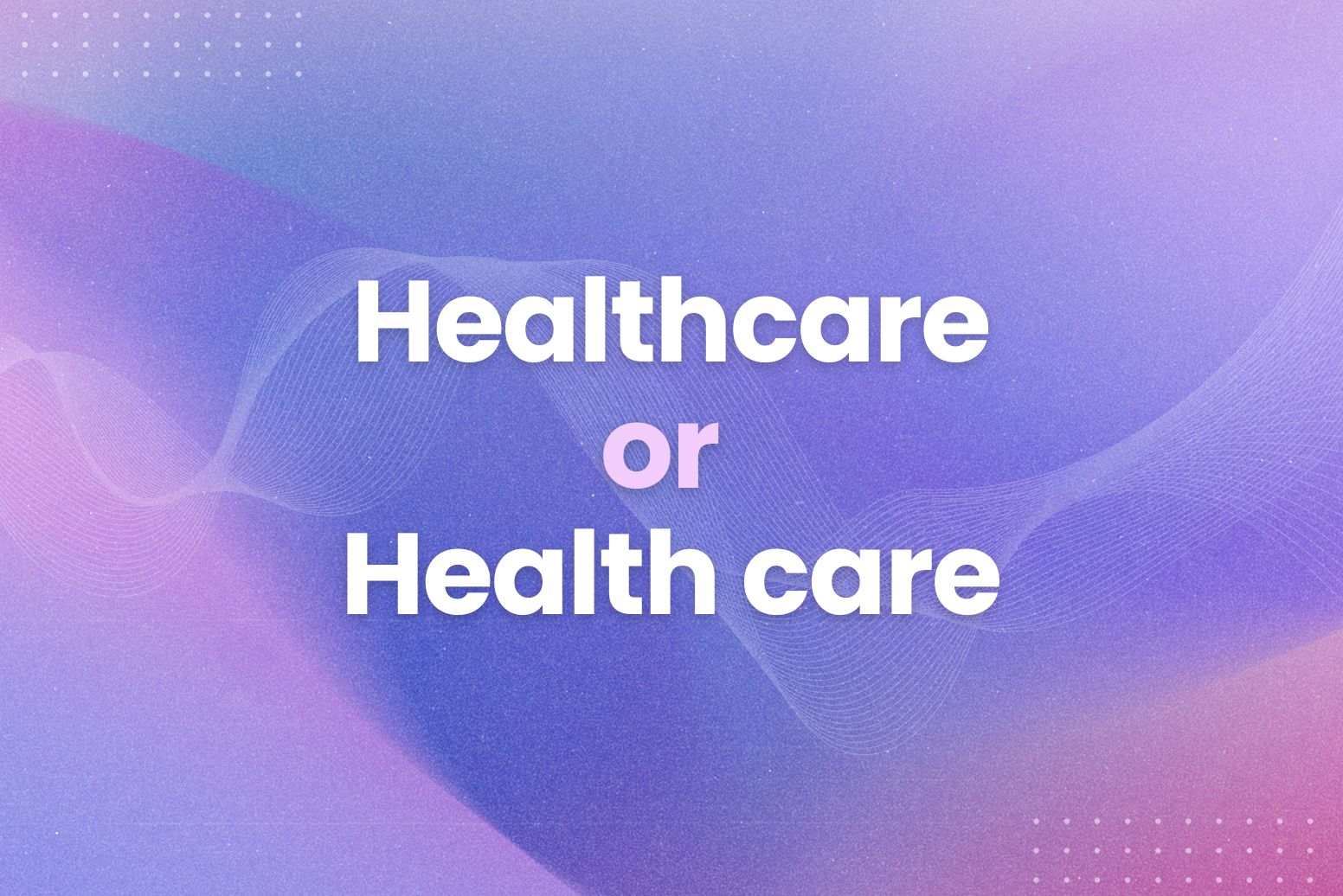Ever catch yourself debating whether to use “healthcare” or “health care”? Yeah, it’s a pretty common dilemma. These two terms look almost identical, and while they’re often used interchangeably, they carry slightly different meanings depending on context, which only adds to the confusion. But here’s the thing: they actually have slightly different meanings depending on the context. It’s kind of like deciding between “casual” and “business casual”—they’re super similar, but those little details can totally change the meaning.
No more second-guessing that message or worrying about an awkward typo. Arvin AI has you covered, one perfect sentence at a time.
What Does “Healthcare” Mean?
Healthcare is a single word that represents the system, industry, or field related to medical services. In other words, it’s the broad umbrella term that covers everything from hospitals to insurance companies to the policies that govern them. You’ll see healthcare used often when discussing industries or reforms.
- The healthcare industry is growing rapidly with advancements in AI technology.
- Debates about healthcare reform are dominating headlines yet again.
Put simply, healthcare is about the overall system and structure that works to provide medical services on a large scale.
What Does “Health Care” Mean?
Health care, on the other hand, focuses on the actions and services provided to individuals. It’s two words because it’s more personal—it’s about the actual care someone receives to stay healthy or recover.
- “She received high-quality health care during her hospital stay.”
- “The goal of health care is to meet the specific needs of each patient.”
So, while healthcare is about the entire system, health care zooms in on the personal experience, focusing on the interactions and services that help people maintain or improve their health.
Key Differences Between “Healthcare” and “Health Care”
| Aspect | Healthcare | Health Care |
| Form | Single word. | Two separate words. |
| Meaning | Refers to the overall system, industry, or field related to medical services. | Focuses on the actions or services provided to individuals. |
| Usage | Used when discussing policies, industries, or the infrastructure of medical services. | Used to describe personal medical services or actions taken to maintain health. |
| Examples in Context | “Advances in the healthcare industry are transforming patient outcomes.” | “He received excellent health care after his surgery.” |
| Tone of Application | Broad and institutional. | Personal and service-oriented. |
| Example | Discussions about Universal Healthcare policies in political debates. | “Meredith Grey provides compassionate health care to her patients on Grey’s Anatomy.” |
Common Grammar Mistakes
Using “Healthcare” When You Mean “Health Care”
- Mistake: “Aunt Lisa received fantastic healthcare at the clinic after her accident.”
- Correction: “Aunt Lisa received fantastic health care at the clinic after her accident.”
- Why it’s wrong: You’re focusing on the specific services she got, so health care fits better here.
Switching “Health Care” for “Healthcare” in Industry Contexts
- Mistake: “The health care industry, like what you see in shows like The Good Doctor, is growing rapidly with AI advancements.”
- Correction: “The healthcare industry, like what you see in shows like The Good Doctor, is growing rapidly with AI advancements.”
- Why it’s wrong: Discussions about the system or field require healthcare.
Mixing Them Up in the Same Sentence
- Mistake: “Dr. Patel, who has worked in healthcare for 15 years, provides the best health care to his patients.”
- Correction: “Dr. Patel, who has worked in health care for 15 years, provides the best health care to his patients.”
- Why it’s wrong: Consistency matters—health care works for both instances here.
Using “Healthcare” for Personal Services
- Mistake: “Jamie is trying to find affordable healthcare for her three kids.”
- Correction: “Jamie is trying to find affordable health care for her three kids.”
- Why it’s wrong: Jamie’s situation is about individual services, so health care is the correct choice.
Every writer needs a second pair of eyes—Arvin AI’s Grammar Checker is yours.
Final Words
In the end, the distinction between “healthcare” and “health care” is less about rigid rules and more about understanding nuance. It’s a small detail, but as with most things in life, the small details can make all the difference.
By using the terms appropriately, you can communicate more clearly and leave a stronger impression—whether you’re drafting an email, chatting with colleagues, or even writing a blog post.
If you’re still unsure, tools like Arvin AI’s Grammar Checker can help you polish your writing and avoid those pesky mistakes. After all, clarity and confidence in your words can make even the toughest grammar debates feel manageable.
FAQ
Health care is two words when referring to services, while healthcare is one word when talking about the industry or system.
The AMA Manual of Style prefers “health care” as two words unless referring to the broader industry context.
Oxford English Dictionary lists both forms, but “health care” is generally used more in British English.
In British English, “health care” is the standard spelling, though “healthcare” is increasingly seen in informal writing.
AP Style recommends using “health care” as two words in all contexts.
Use “health care system” when talking about services and structures; “healthcare system” is acceptable in informal contexts.
Both are valid, but “healthcare industry” is more common when referring to the sector as a whole.
The Chicago Manual of Style recommends “health care” as two words in most contexts, aligning with formal usage.
“Health care system” is preferred for clarity in formal writing, though “healthcare system” is increasingly common in informal settings.




